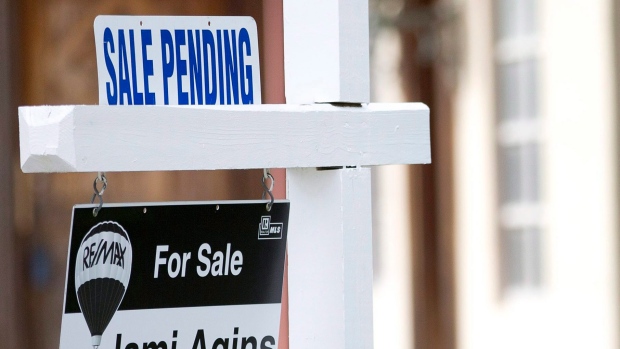Canada plans to ban some "bundled" residential mortgages to clamp down on risky lending, a regulator said on Thursday, six months after a Reuters investigation revealed that regulated mortgage providers were teaming up with unregulated rivals to circumvent rules limiting how much they can lend against a property.
Regulators are looking to rein in risky lending amid fears of housing bubbles in the cities of Toronto and Vancouver and are concerned that the loans, which enable desperate homebuyers to borrow up to 90 per cent of a property's value, could turn bad if prices begin to retreat.
Problems at lender Home Capital Group, which has seen depositors withdraw 95 per cent of funds from high-interest savings accounts, have exacerbated concerns about whether mortgage underwriting standards in Canada are stringent enough.
The Office of the Superintendent of Financial Institutions (OSFI) on Thursday said it is considering "expressly prohibiting co-lending arrangements that are designed, or appear to be designed, to circumvent regulatory requirements." It is asking for feedback from interested parties and the wider public before Aug. 17, and said it will finalize the guidelines and set an effective date for implementation later in 2017.
Reuters reported in January that regulated mortgage providers were teaming up with unregulated rivals called Mortgage Investment Corporations (MICs), which pool money from wealthy individuals, to get around rules limiting how much mortgage providers can lend against a property.
In an interview with Reuters in February, Carolyn Rogers, assistant superintendent at OSFI, warned lenders against such activity.
The government does not track bundling, and the practice is sometimes carried out in a discreet fashion, with lenders working directly with the MICs or referring mortgage brokers to them to work out a loan with a borrower. But Finance Ministry data shows that the share of unregulated lenders had shot to 12.5 per cent of Canada's $1.6 trillion mortgage market in 2015, up from 6.6 per cent in 2007.
Home Capital Group, which last month agreed to a $2 billion loan from Warren Buffett's Berkshire Hathaway Inc, and Equitable Group, are two listed mortgage providers that have told Reuters they participate in bundled lending.
Equitable's Chief Executive Andrew Moor said in an interview on Thursday that 10 per cent of the company's new mortgage originations involved co-lending arrangements, which he said were used as a "risk management tool."
Moor said he did not expect all that business to be lost and expects homebuyers will find another way to make a downpayment.
"People may be forced to sell an asset they otherwise wouldn't choose to sell to come up with a bigger downpayment. It's hard to know what impact it will have on our business but it's not in double-digits," he said.
Moor said he would consult with OSFI but was expecting the proposal will be implemented.
"A lot of these changes seem to be unfavorable for people that are self-employed or new to Canada who might otherwise have a challenge getting a mortgage. The other consequences of actions like this need to be understood," he added.
Home Capital has not disclosed how much of its business depends upon it and did not respond to requests for comment.
Shares of Equitable were down 0.4 per cent while Home Capital shares, which have lost nearly half their value since the start of the year, were down 3.9 per cent. Another alternative lender, Street Capital, was down 3.8 per cent.
LATEST MEASURES BY GOVERNMENT
Bundled or co-lending agreements with an unregulated entity can enable lenders to offer combined mortgages worth up to 90 per cent of a property's value.
Under federal rules, regulated lenders in Canada are not allowed to lend more than 65 percent of the value of a home to borrowers with bad or nonexistent credit records.
They also cannot lend more than 80 per cent of a property's value - even to borrowers with solid credit - without obtaining government-backed insurance. Under rules rolled out last October, that insurance requires the banks to run income stress tests on borrowers.
Canadian authorities have said bundling represents a small portion of the mortgage market. However, mortgage brokers say the arrangements have proliferated as Canadian regulators tighten lending standards to shield borrowers in case a decade-long housing boom goes bust.
The regulator also proposed rules on Thursday requiring a stress test for all uninsured mortgages and that the maximum amounts lent out against a property's value are adjusted for local market conditions.
The proposals are the latest in a series of measures implemented by Canadian authorities over the past 12 months amid concerns about housing market bubbles.
The Ontario government introduced measures in April to try to cool the housing market in Toronto, including a foreign buyers tax. Sales in Canada's largest city fell 37 per cent in June compared with a year ago, the Toronto Real Estate Board said on Thursday.










